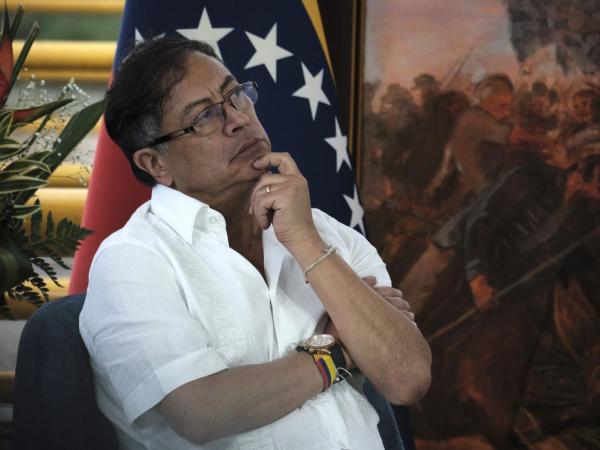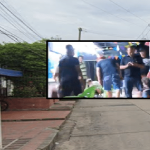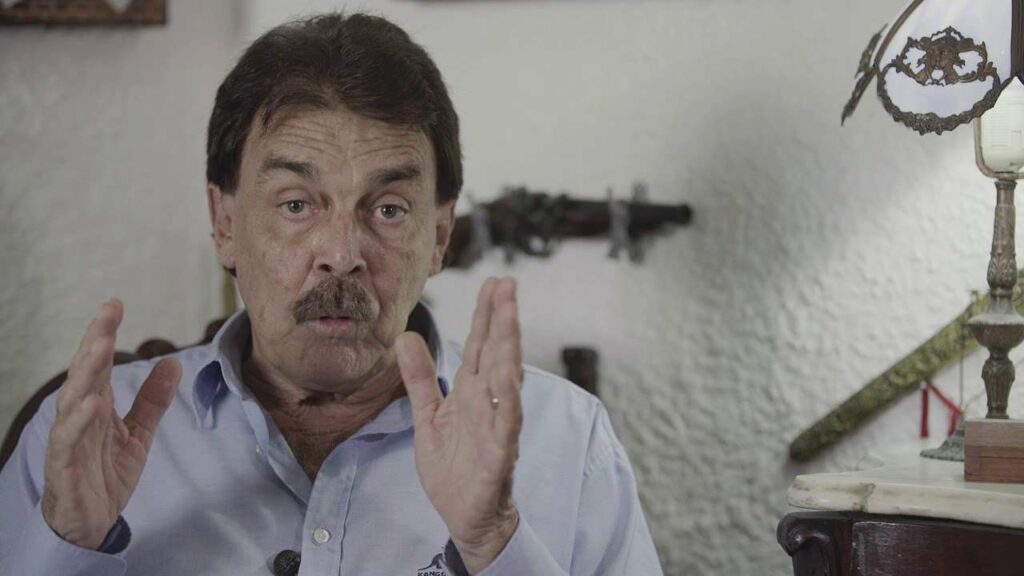Colombian President Gustavo Petro It was declared, this Friday, February 17, ‘persona non grata’ by the plenary session of the Peruvian Congress, in rejection of his assertions about the National Police of Peru (PNP) in the midst of the political and social crisis affecting the Andean country.
(See: And the operators? Petro’s idea for internet in remote areas).
This decision was made after a statement made by Petro last Friday, February 10, when he mentioned the extensive deployment of the PNP in the historic center of Lima the day before, in response to an anti-government demonstration.
“In Peru, (the police) march like Nazis, against their own people, breaking the American Convention on Human Rights“said the Colombian president.
(See: Maduro proposes to Petro to create an economic zone between Colombia and Venezuela).
Following those statements, Congressional Foreign Relations Committee approved a proposed declaration for “defend the National Police“, given that “no one can offend her by saying they are nazi troops“, according to its president, the conservative deputy Maria del Carmen Alva, when presenting the proposal before the plenary session of the Legislature.
Specifically, the Parliament expressed its rejection of Petro’s “unacceptable” expressions, considering that these constitute an “offense” to the PNP, the Peruvian State and “all the Jewish people” by “trivializing the Holocaust.”
For this reason, he declared it ‘persona non grata’ and urged the Interior and Foreign Ministries to take “the necessary steps” to guarantee that “do not enter the national territory“.
Demonstrations in Lima, the capital of Peru.
Last January, the Peruvian government expressed through a diplomatic letter its “energetic protest against a new act of interference“of Petro in the internal politics, after he ruled on the eviction of protesters at a university in Lima.
(See: Congressmen ask Petro “not to threaten” if they do not approve reforms).
The Peruvian Parliament already approved at the end of 2022 a motion rejecting “the constant acts of interference in internal affairs” by Petro and his Mexican counterpart, Andres Manuel Lopez Obrador.
Also, the government of Dina Boluarte, the Peruvian president, had shown in December his “deep discomfort” over Petro’s statements in support of the former president Peter Castillo, considering them an “unacceptable” interference in the internal affairs of the country.
(See: Petro will regulate public services: here’s what it could do).
Peru previously declared the Mexican ambassador in Lima ‘persona non grata’, Pablo Monroy, and the former Bolivian president Evo Morales “for his constant incitement in national politics“which, always in Parliament’s opinion, seek”unbalance the internal order of the country“.
EFE















